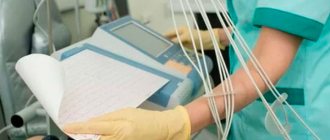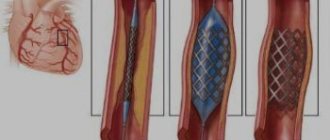Blood in the stool is a symptom of serious diseases, signaling the presence of bleeding in the gastrointestinal tract. By the type, nature, intensity and duration of bleeding, you can roughly determine the cause of its appearance. It is important to consult a doctor, even if there are no obvious inclusions, but the color of the feces has changed. The Anapa Diagnostic Center performs comprehensive diagnostics to identify gastrointestinal diseases and their treatment using medical and surgical methods.
Symptoms
Bleeding from the upper gastrointestinal tract is characterized by tarry stools, if the blood loss is extensive, then the stool may be tarry, the stool is black, semi-liquid, with an unpleasant odor.
There may be fresh blood in the stool if the blood loss is extensive. In this case, there is severe pain in the chest, bloody vomiting with clots the color of coffee grounds. This symptomatology is typical for bleeding from the stomach, duodenum, and esophagus. The appearance of blood from the anus is characteristic of bleeding from the colon or terminal ileum. When bleeding from the lower gastrointestinal tract, the stool is bloody, the discharge from the anus is bright red, the blood is mixed with the stool, and with extensive bleeding, symptoms of loss of circulating blood, hemorrhagic shock, and hypovolemia appear. When bleeding from anal fissures, scarlet blood is released during bowel movements.
When bleeding occurs, the patient experiences increased sweating, weakness, disorientation, pallor, tachycardia, and syncope.
With hidden bleeding from the upper gastrointestinal tract, there may be no vomiting mixed with black flakes, and the state of anemia increases.
Blood in the stool: what could be hidden behind this symptom?
Many people simply turn a blind eye to a problem such as blood in the stool, are embarrassed to discuss it even with doctors, and try to treat themselves. What are the reasons for the appearance of such discharge? Should you panic if you see blood in your stool or on toilet paper? We asked these and other questions to Yulia Anatolyevna Saltymakova, a gastroenterologist at the Expert Clinic Tula.
— Yulia Anatolyevna, is blood in the stool always a cause for concern? Could this symptom be normal?
— Blood in the stool is always a very alarming symptom. It cannot be the norm under any circumstances. If blood suddenly appears in your stool, you should definitely consult a doctor.
— Why does blood appear in stool? What diseases can this sign be a symptom of?
- Stool with blood, liquid stool with mucus and blood can be found in intestinal cancer and be a manifestation of hemorrhoids. If we see blood in the stool (in any quantity), we need to consult a doctor. Blood usually appears in diseases of the lower parts of the digestive tract, i.e. in diseases of the colon (including rectum), and anal fissures. If the blood is from the upper digestive tract, it is usually not visible in the stool or turns the stool black.
— What to do if blood is detected in the stool? Which doctor should I contact?
— To a gastroenterologist or proctologist. If for some reason these specialists are not available, then contact a therapist so that he can prescribe the examinations that are required in this case, or refer you to an appointment with a specialist.
— Blood in stool cannot always be seen with the naked eye. In what cases is stool occult blood testing recommended?
— Firstly, the indication is age. After 45–50 years, any person must undergo a stool test for occult blood once a year. Because the risk of polyps, inflammatory diseases, etc. increases with age. Secondly, long-term pain syndrome. For example, when for more than a month you have been bothered by constant abdominal pain that does not respond to standard treatment prescribed by a therapist, severe bloating. Thirdly, with an established diagnosis. For example, with an exacerbation of a peptic ulcer or with a newly diagnosed gastric and duodenal ulcer. In this case, a stool test for occult blood is also required.
Read materials on the topic:
How to avoid becoming a balloon? Getting rid of gas formation in the intestines How to protect the stomach from ulcers?
— In addition to laboratory analysis, what other diagnostics can be prescribed?
— There are certain algorithms. If, for example, occult blood is detected during a preventive examination, i.e. the test is positive in the absence of any gastroenterological symptoms (abdominal pain, etc.), then other screening examinations are prescribed: general and biochemical blood tests, ultrasound of organs abdominal cavity. If blood is detected in the presence of, for example, prolonged abdominal syndrome (severe abdominal pain), or vomiting with blood is noted, then, of course, endoscopic examinations are already prescribed. A gastroscopy is a must, and if there are changes in blood tests or severe pain, a colonoscopy.
Read materials on the topic:
General and clinical blood test: frequently asked questions What does a biochemical blood test show? Where can I find the courage to make up my mind? Gastroscopy – WITHOUT fear! Colonoscopy of the intestines - is it scary?
— What preparation is needed before research?
— Before a colonoscopy, it is imperative to cleanse the intestines. To completely clean it and improve visualization during the examination, the patient follows a special diet for several days, and on the eve of the examination takes special medications. Gastroscopy is done on an empty stomach.
Fecal occult blood tests vary. If this is a routine test that is prescribed during medical examinations and in municipal clinics, then it is less informative. Before the study, you must also follow a certain diet for three days. Do not eat meat, fish, green vegetables, tomatoes, etc. You cannot submit stool for this test while taking iron supplements. That is, it is necessary to adhere to many rules so that the analysis does not turn out to be false negative or, conversely, false positive. And there is a special stool test for occult blood, the so-called enzyme immunoassay. The research is carried out using specific chemical reactions. They are aimed specifically at identifying intestinal diseases. And dieting is not required in this case.
IF NOTHING WORRIES, BUT A PERSON SAW BLOOD IN THE FEED VISUALLY, OR IT WAS DETECTED DURING AN EXAMINATION, i.e. THE TEST FOR OCCURRENT BLOOD IS POSITIVE, YOU CANNOT CLOSED YOUR EYES TO THIS, YOU SHOULD ALWAYS CONSULT A DOCTOR
— What could be the consequences if you ignore the appearance of blood in the stool?
- It depends, in particular, on the cause of this symptom. Unfortunately, the consequences can also be unfavorable. For example, if blood in the stool appears due to anal fissures (the most harmless on the list of diseases that cause blood in the stool), they are accompanied by pain, but can be treated quite effectively.
But the absence of pain and generally any other complaints or signs, but the presence of hidden blood in the stool, can be a symptom of a serious illness. For example, adenomatous polyps, which often appear in the intestines with age, do not hurt at all, but it all starts with hidden blood in the stool. After 8–10 years, adenomatous growths often degenerate into malignant neoplasms. And, unfortunately, we do not see such cases very rarely. Therefore, even if nothing worries you, but a person saw blood in the stool visually, or it was discovered during an examination, i.e., the test for occult blood is positive, you cannot turn a blind eye to this, you must definitely contact a doctor.
You can make an appointment with specialists here. ATTENTION: the service is not available in all cities
Interviewed by Marina Volovik
The editors recommend:
MRI of the intestine and colonoscopy: complementary or alternative? Virtual colonoscopy: an alternative or a diagnosis in itself? MRI of the stomach - an alternative to gastroscopy? Not always gastroscopy. Examination for abdominal pain Not only a colonoscopy: what will a stool test tell you?
For reference
Saltymakova Yulia Anatolyevna
In 2003 she graduated from the Tver State Medical Academy.
2004 – internship in pediatrics.
2006 – primary specialization in gastroenterology at the Research Institute of Pediatric Gastroenterology, Nizhny Novgorod.
Currently, he is a gastroenterologist at the Expert Clinic in Tula. Receives at the address: st. Boldina, 74.
Diagnostics
Before diagnosing the source of bleeding, it is necessary to stabilize the patient's condition.
Intravenous administration of fluid or blood components is used, and respiratory resuscitation is additionally performed. Diagnostic methods:
- taking anamnesis;
- collection of clinical symptoms;
- laboratory diagnostics - general blood test, coagulogram, liver tests;
- digital examination of the rectum;
- instrumental diagnostics:
- endoscopic examination of the upper gastrointestinal tract if upper bleeding is suspected;
- angiography;
- irrigoscopy or CT enterography - for hidden bleeding;
colonoscopy – for bleeding from the lower sections;
Bleeding pattern and disease
- Regular heavy bleeding not associated with bowel movements - diverticulosis, polyposis, Crohn's disease, ulcerative colitis, rectal or colon cancer;
- Blood mixed with feces - cancer of the rectum and colon;
- Bleeding with diarrhea - dysbiosis, irritable bowel syndrome;
- Discharge of blood with mucus or pus - internal hemorrhoids, rectal prolapse or polyp;
- Severe bleeding with mucus - proctitis, colitis, rectal cancer.
Make an appointment
Crohn's disease
Crohn's disease is a severe inflammatory disease of all layers of the intestinal wall. In this case, nodules called granulomas appear inside the intestinal wall. The disease cannot be completely cured, only achieving remission. Crohn's disease affects all parts of the gastrointestinal tract. The mucous membrane becomes covered with ulcerative lesions, the ulcers can deepen, pseudopolyps are formed, polyps and ulcers alternate with each other. When the disease becomes more complicated, fever, bleeding, abscesses, fistulas, and peritonitis appear. Characterized by abdominal pain, flatulence, weight loss, anemia, hypovitaminosis. The disease develops slowly over several years. With Crohn's disease, symptoms such as damage to the joints, the mucous membrane of the eyes, and inflammation of the lymph nodes appear.
Treatment
Treatment depends on the location of the bleeding and its intensity.
In case of minor bleeding, nutrition is adjusted, hemostatic drugs are prescribed, and deficiencies of microelements and vitamins are corrected. Additionally, the patient receives enteral or parenteral nutrition.
In case of acute bleeding, intensive therapy is necessary to stabilize the patient - restoration of circulating blood volume with the help of plasma substitutes or blood components. If respiratory function is impaired, it is necessary to restore respiratory function.
For varicose veins of the esophagus, endoscopic sclerotherapy, clipping, and vein ligation are used.
If this is ulcerative bleeding, endoscopic coagulation or angiographic embolization of the pathological vessel and intensive drug therapy with proton pump inhibitors are advisable.
For intestinal diverticulosis, the coagulation method is used, and hemostatic clips are used.
Preventing blood in stool
- 1. Annual preventive examinations with doctors.
- 2. Timely treatment of diseases.
- 3. Occult blood test.
- 4. Healthy lifestyle.
- 5. Eating foods containing fiber.
- 6. Daily physical activity.
How to prepare for the examination?
The own research of specialists from the proctology department of the Altermed clinic made it possible to make a visit to a proctologist as easy and comfortable as possible. There is no longer any need to fast the day before and plan the procedure for the morning. In the proctology departments of Altermed, a way has been found to successfully cope with all these difficulties. This is Microlax bowel preparation.
The use of Microlax microenemas makes fasting unnecessary, does not require special equipment or premises, and saves a lot of time. The laxative effect occurs 5-15 minutes after administration of the drug. The quality of bowel cleansing is such that treatment can begin immediately after rectoscopy and anoscopy. If it is necessary to use during pregnancy and lactation, Microlax does not require special precautions.
The Proctology Clinic provides diagnostics using the most modern equipment. The best doctors in St. Petersburg - both men and women - and a delicate approach are at your service.











